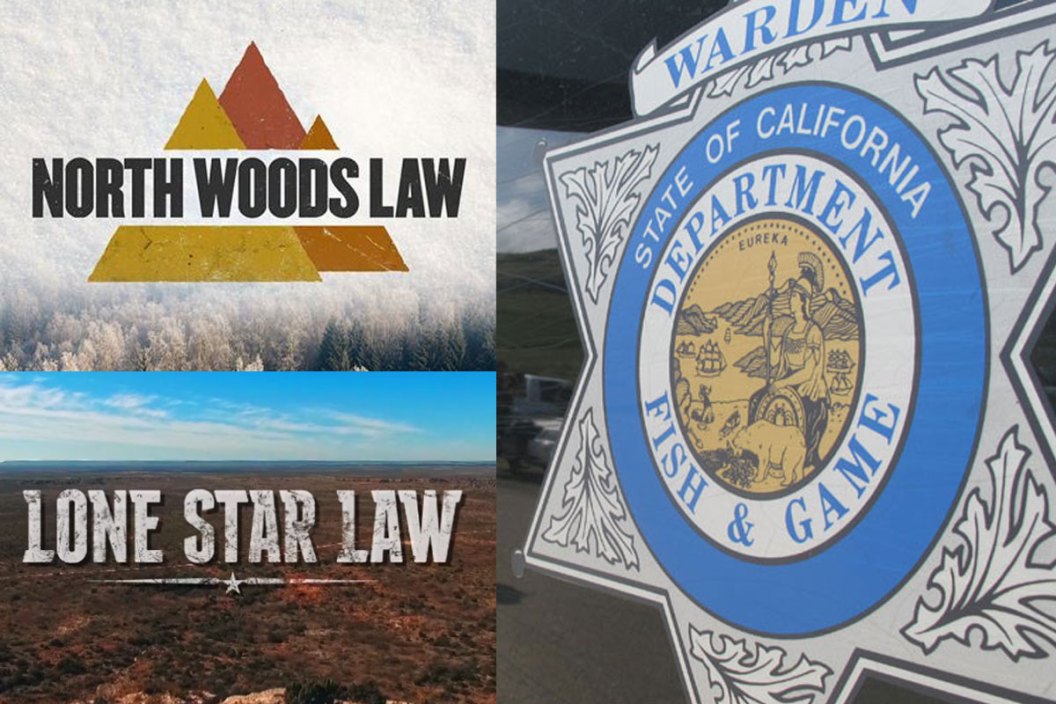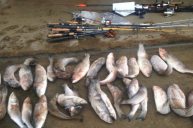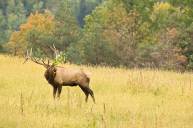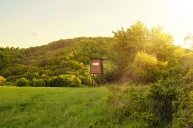These wildlife law enforcement series are fast becoming some of the most popular shows on TV.
As hunters, fishermen, and lifelong outdoorsmen, sooner or later we'll all experience an interaction with wildlife officials.
Whether it's getting checked in the field for licenses, having your harvest verified as within the bag limits, or ensuring you're practicing the safe use of firearms, game wardens are there to serve a purpose and to do their jobs.
We plan ahead, buy the proper licenses, and recreate outdoors within the regulations in an effort to be the model outdoor citizens that we all want to be.
Outdoorsmen and women are the epitome of conservation minded people when it comes to hunting and fishing, but there are also those who abuse these rights. Whether intentionally or not, there's always a chance that rules can be broken, and wildlife conservation officers are there to work against these lapses. There's a certain level of fascination in watching a potential poacher get what's coming to them, and to see what it's like inside the daily life of a game warden in America.
Hence, the popularity of wildlife law enforcement series on cable television has risen to COPS-like heights. Okay, maybe it won't reach the echelon that the original law enforcement series managed, but watching shows like "North Woods Law," "North Woods Law: Washington State" (formerly called "Rugged Justice"), "Lone Star Law," and "Wild Justice" have become a popular pastime for large swaths of American TV audiences.
Those men and women of wildlife law enforcement have a great deal on their plate, and these great TV shows are beginning to show us what that's really like, from the inside. Wildlife management and wildlife resources may begin at the state level, but wildlife crime needs a watchdog. Outdoor criminal justice begins and ends in the field, and by watching these shows, we get to see it happen.
North Woods Law
Originally set in Maine, "North Woods Law" focused on numerous game wardens of the Maine Warden Service. In 2017, the show changed locations to New Hampshire, following members of that state's Fish and Game Department.
The show follows the efforts of wildlife law officers as they respond to numerous important, dangerous, and sometimes even comical cases of outdoor escapades. Sometimes on the coast and sometimes on the highway (fans will remember an episode with a stubborn moose that wouldn't clear the road), these men and women work tirelessly to keep people and animals safe and enforce all of the game laws of the region.
North Woods Law: Washington State
According to Animal Planet, the show formerly known as "Rugged Justice" now borrows the name of the Maine-centered series and "follows Washington State's Department of Fish and Wildlife Law Enforcement Program as they police the Evergreen State's unforgiving mountain terrains, twisted rainforest back roads and densely populated coastal areas."
Viewers can watch as WDFW Police Officers patrol more than 42 million acres of hostile wilderness environment, and sometimes even more hostile people. Unfortunately, conservation law enforcement is needed to protect the state's wildlife and natural resources from poachers and traffickers in the illegal animal parts trade alongside the need to enforce hunting, fishing, and trapping laws.
Lone Star Law
As the name suggests, this series is set in Texas and is similar to its network-partnered show "North Woods Law." It follows game wardens of the Texas Parks and Wildlife Department (TPWD) from various regions of the state with game management and game conservation laws serving as the main focus.
From the Gulf Coast to the Panhandle to the Rio Grande River and everywhere in between, wildlife law enforcement agencies in Texas attempt to wrangle unruly alligators, bust poachers, and even respond to a pipeline leak spilling oil on the coastline.
Wild Justice
Focusing on the game wardens of the state of California, "Wild Justice" airs on the National Geographic Channel and follows many of the same formulas of the other series' successes.
But there are differences, and seeing as California is the nation's most populated state, there are various concerns involving illegal drugs, dangerous fugitives, and urban gangsters mixed in with the wildlife conservation work they're also meant to conduct.
Wildlife Law Enforcers and the Role They Play
Federal wildlife officers and the U.S. Fish and Wildlife Service are charged with upholding regulations like the Migratory Bird Act and protecting endangered species, but most of the rules and decision making are left up to the states to decide what's best for their population, their area, and their wildlife.
State agencies in the U.S. from Florida to Alaska are charged with ensuring the safety of boaters, enforcing boundary laws and public land access rules, and fighting vehemently against poaching. But it's just as important to show that they have a human side, and these shows provide that big time.
No Big Mystery
Wildlife conservation officers tend to have grown up in the state where they have taken their oath to protect wildlife, meaning they have a close, personal stake in upholding the local game laws and conserving the wildlife and habitat of their home.
There's so much more to what these folks do than just busting the bad guys (though it's undeniable that we love that part), including teaching kids to properly shoot firearms, speaking at schools about the importance of conservation, and volunteering at places like animal shelters.
It's not always an easy thing to try and show what the daily lives of outdoor law enforcement are like, but TV series like these do a decent job. It's no wonder they've become so highly-watched and have aired for so long.
The men and women of outdoor criminal law can't be everywhere at once, and we understand. It's up to the rest of us to ply the old axiom when we are hunting and fishing and something isn't right: If you see something, say something.
It might just help take a poacher out of the woods.
Looking for a little more or even hot lunch for your hunting blind? Follow my webpage, or on Facebook and YouTube.
NEXT: FLY FISHING VS. CONVENTIONAL FISHING: PROS, CONS, AND WHY WE LOVE BOTH
WATCH




